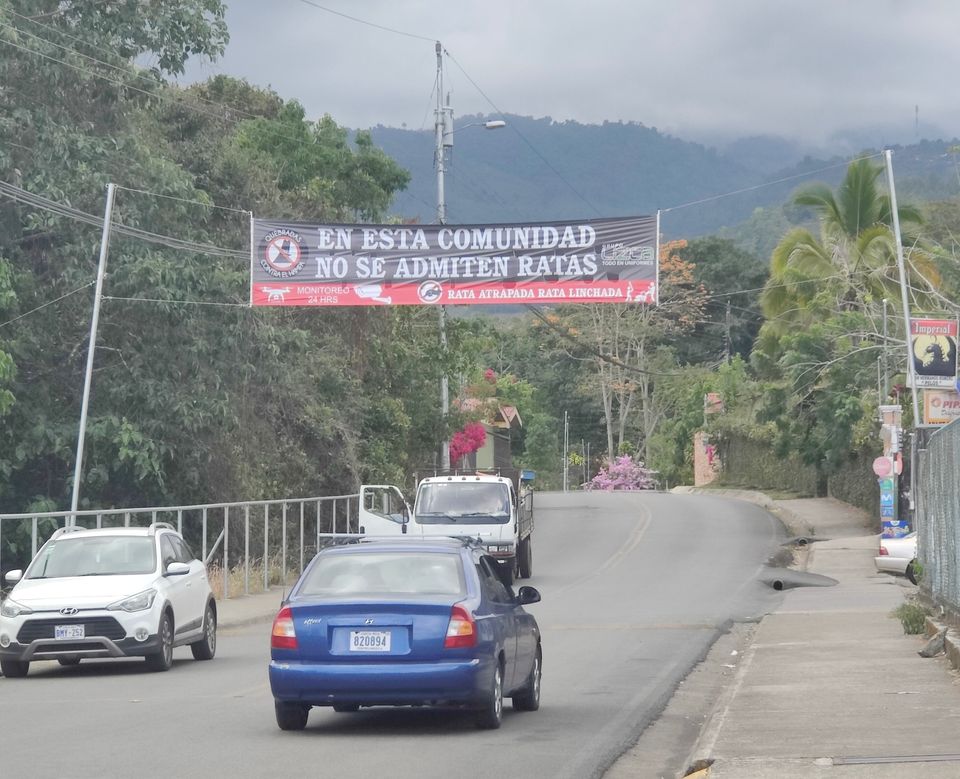There’s a banner strung across the main road in Quebradas, Costa Rica, that carries an ominous warning. “No rats allowed in this community,” the main text reads. “Rats” here, of course, refers to thieves, which have long been a scourge of honest folks throughout the country. Just look at the bars on doors and windows, the broken glass atop cinder block fences, and the proliferation of armed security guards in front of fast-food joints, shoe stores and supermarkets. Petty thievery is a constant concern. And people are sick of it.
The subtext notifies potential rats that the community is under 24-hour surveillance, and that “a trapped rat is a lynched rat,” next to a graphic of two people beating and stomping a presumed thief into the ground. It's also worth noting that the sign appears to be sponsored by Grupo LIZCA, which is a uniform and printing shop. I can imagine their slogan: "Look professional while you beat suspected theives senseless."
While the message about lynching might sound like extreme posturing, it’s happened before. “And it works,” said one local resident. “Ever since that case and this sign, we haven’t had any trouble.”
“That case” happened on January 27, 2020 in a nearby neighborhood, when neighbors allegedly discovered Jeison Marín Solís stealing from a local home. A group of neighbors chased Marín down, then killed him. But nobody talked, and those responsible for Solís’ death remain free.
This article (in Spanish), “Lack of witnesses limits charges for lynching thieves,” details how vigilante groups are taking care of business extrajudicially. “Nobody takes responsibility, and nobody turns anyone in,” said Randall Picado, who was the head of Costa Rica’s police force.
I’ve heard of several other examples of communities taking justice into their own hands. And when everyone keeps their mouths shut, convictions are rare. Only when the victim survives and isn’t beaten too badly - and can therefore speak to police - can the authorities build a case, and even then the victims may wish not to press charges due to fearing further street justice. And if nobody talks, “we can’t arrest the entire neighborhood,” said Picado.
There’s still a bit of Wild West feel to Costa Rican justice. Just keep your belongings near, and your hands to yourself and you’ll be just fine.
